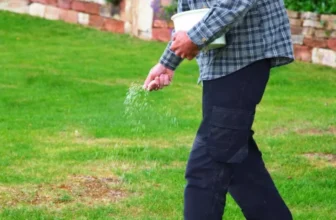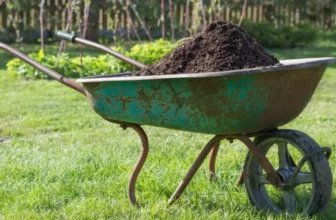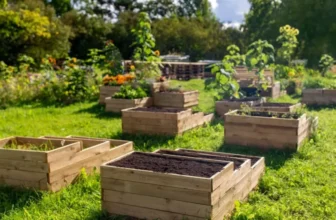
When it comes to maintaining a lush, healthy lawn using organic methods, there are several key strategies you should consider. From selecting the right grass species to implementing natural fertilization techniques and organic weed and pest control methods, each step plays a crucial role in the overall health and appearance of your lawn. By following these best practices, you can create a vibrant outdoor space that not only looks beautiful but also promotes a sustainable and eco-friendly approach to lawn care.
Choosing the Right Grass Species
When selecting the appropriate grass species for your organic lawn, consider the climate and soil conditions in your area. Different grass species thrive in various environments, so it’s crucial to choose one that will flourish naturally. For cooler regions, fescue and bluegrass are popular choices, while warm-season grasses like Bermuda grass and zoysia are better suited for hotter climates. Understanding your local weather patterns and soil composition will help you make an informed decision.
Additionally, think about the amount of sunlight your lawn receives. Some grass species, such as St. Augustine grass, require more sun exposure, while others like fine fescue can tolerate shade better. By matching the grass species to the specific conditions of your lawn, you can promote healthy growth and reduce the need for excessive maintenance.
Consulting with local experts or nurseries can also provide valuable insight into which grass species are well-suited for your area. Take the time to research and select the right grass species from the beginning to set a strong foundation for your organic lawn.
Natural Fertilization Techniques
Consider enhancing the health of your organic lawn by exploring natural fertilization techniques that support sustainable growth and vibrant greenery.
When it comes to natural fertilization, one effective method is using compost. Compost is rich in essential nutrients and helps improve soil structure, promoting healthy root growth and overall lawn vitality. You can create your own compost using kitchen scraps, yard waste, and other organic materials. Additionally, consider using organic fertilizers made from natural sources like seaweed, bone meal, or fish emulsion. These products provide a slow release of nutrients, preventing the risk of over-fertilization that can harm your lawn and the environment.
Another natural fertilization technique is utilizing grass clippings left on the lawn after mowing. Grass clippings act as a natural mulch, returning nutrients to the soil as they decompose. This practice, known as grasscycling, helps reduce the need for additional fertilizers and encourages a healthier lawn ecosystem.
Implementing Composting Practices
Start enhancing your organic lawn maintenance efforts by implementing effective composting practices that can boost soil health and support lush greenery. Composting is a simple yet powerful way to recycle organic material and create nutrient-rich soil. Begin by collecting kitchen scraps like fruit peels, coffee grounds, and eggshells. Combine these with yard waste such as grass clippings, leaves, and small twigs. Layering green materials high in nitrogen with brown materials rich in carbon can help speed up the composting process. Turn the compost pile regularly to aerate it and promote decomposition.
Composting not only enriches the soil with essential nutrients but also improves its structure, making it better at retaining moisture and supporting beneficial microorganisms. By incorporating compost into your lawn care routine, you reduce the need for synthetic fertilizers and encourage a more sustainable approach to gardening. Remember to monitor the moisture levels of your compost pile and adjust as needed to create the perfect environment for decomposition. With consistent composting practices, you’ll be on your way to cultivating a healthier, greener lawn organically.
Organic Weed and Pest Control
Enhance your lawn’s health and vitality by adopting natural methods to control weeds and pests. Organic weed and pest control focus on maintaining a balance in your lawn ecosystem without the use of harmful chemicals.
To manage weeds organically, consider hand weeding, mulching, and overseeding bare patches to promote dense grass growth that naturally suppresses weed growth. Mulching with organic materials like grass clippings or wood chips can help smother weeds and retain moisture, while also providing nutrients to the soil as they break down.
For pest control, encourage natural predators like birds, ladybugs, and praying mantises that feed on harmful insects. Planting diverse species of plants can attract beneficial insects that keep pest populations in check. Additionally, using natural remedies like neem oil, insecticidal soaps, or garlic spray can help control pests without harming beneficial insects.
Regularly monitoring your lawn for early signs of pest infestations can help you take swift action to prevent damage while maintaining a healthy and thriving lawn naturally.
Garden














